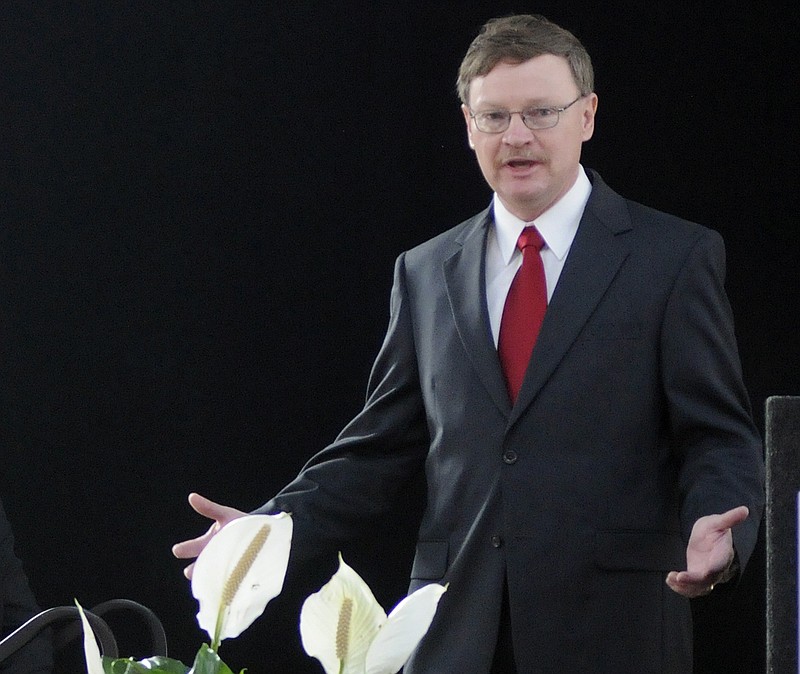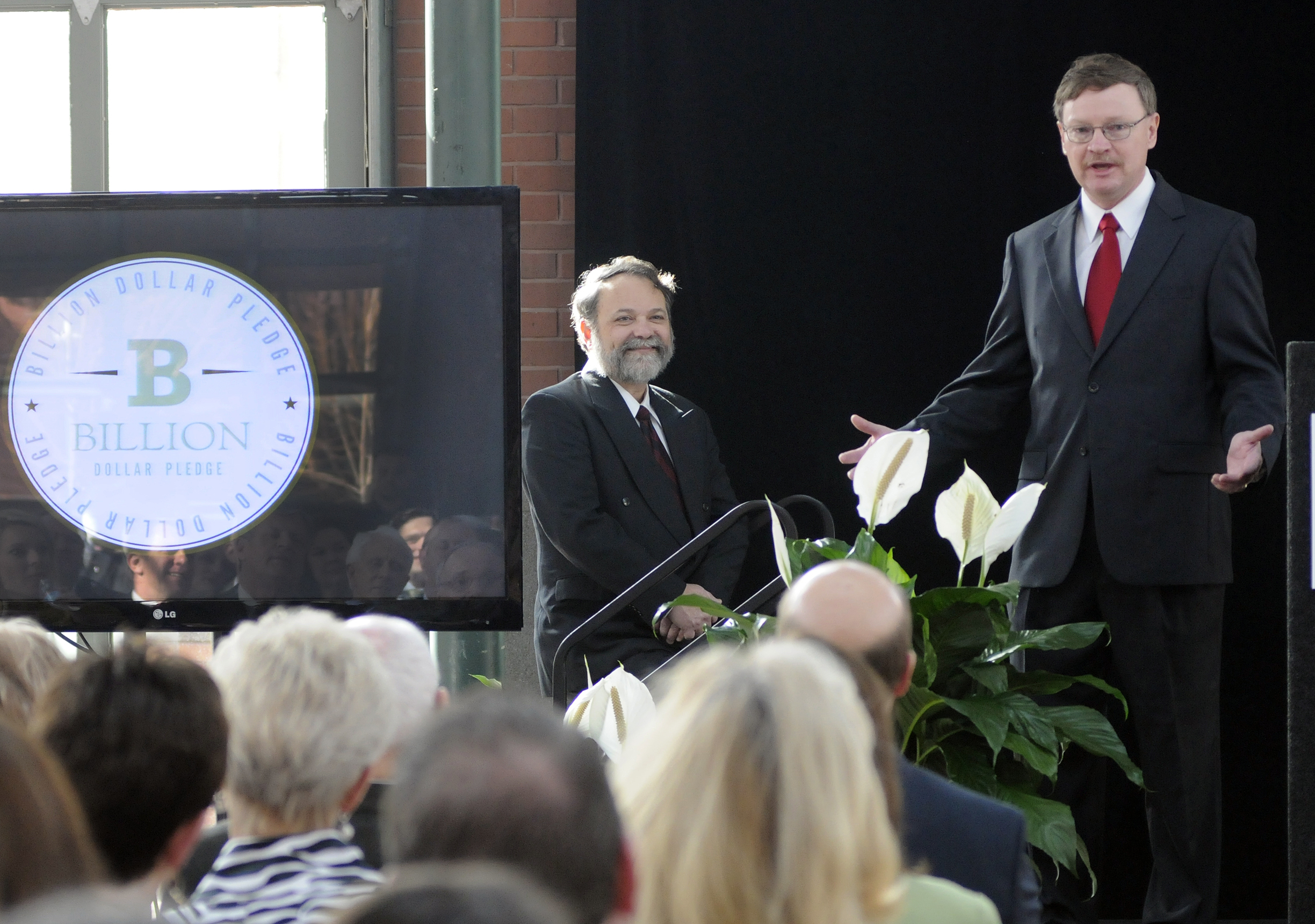Criminal convictions in payday syndicate
› Carey Vaughn Brown — criminal usury, felony› Joanna Temple — attempted criminal usury, misdemeanor› Ron Beaver — attempted criminal usury, misdemeanor› Credit Payment Services — criminal usury, felony› MyCashNow.com — criminal usury, felony› Scenic City Legal Group — attempted criminal usury, misdemeanorSource: Manhattan District Attorney
Plea agreement
› Brown has already forfeited $3 million› He must pay an additional $6 million in forfeiture to victims› A compensation fund will be set up to compensate those who are “verified victims of Brown’s payday lending scheme.”› 250 hours of community service› Three years of probation
Brown’s payday empire
› Carey Brown’s payday lending syndicate, when taken together, would qualify as one of Chattanooga’s largest businesses› In 2012 alone, the company cycled $500 million through its Chattanooga operation› Also in 2012, the company counted gross profit of $150 million in fees and interest› Brown in 2012 siphoned off between $5 million and $8 million to another company he personally controlled
A used car salesman turned tech entrepreneur who operated an illegal payday lending syndicate from Chattanooga will pay $9 million in fines and restitution, as well as serve 250 hours of community service and three years of probation, after pleading guilty to felony usury in New York.
Carey Vaughn Brown, 57, admitted to New York prosecutors that he broke the law from 2001 to 2013 by lending millions of dollars - $50 million to New Yorkers in 2012 alone - with interest rates well in excess of the state's 25 percent annual percentage rate cap.
A Times Free Press investigation in 2011 found that Brown was making loans that, at times, carried an annual interest rate of more than 1,000 percent. Such loans would have also been illegal in Tennessee, though officials at the Tennessee Department of Financial Institutions never took any public action against Brown.
Brown's admission of guilt came after years of denials, lawsuits against whistleblowers, and attempts to camouflage his profitable web-based payday loan business by disguising it as a network of unrelated shell companies in Chattanooga, which shut down in 2013 after banks refused to do business with him anymore.
Brown declined to comment, citing the terms of his plea agreement.
His companies sported generic names including Terenine, Area 203, ACH Federal and Support Seven, and performed legitimate marketing and technology work for well-known companies and nonprofit organizations such as the Chattanooga Area Chamber of Commerce, Focus on the Family and Precept Ministries.
But behind the scenes, the network of businesses operated as a single syndicate to generate high-interest, short-term loans through websites like MyCashNow.com, PayDayMax.com and DiscountAdvances.com.
"It's a horrible mark on Chattanooga, and it never should have happened," said Chris Christiansen, the former director of infrastructure architecture and design for Terenine, one of Brown's now-shuttered shell companies.
Brown, along with top associates Joanna Temple, 60, and Ron Beaver, 57, was indicted in 2014 for a conspiracy to knowingly make payday loans at interest rates that were well in excess of what New York allowed, as well as more than three dozen counts of usury.
According to former employees, Brown set up servers in Bermuda and other international locales in order to evade state regulations, and even partnered with Indian tribes, which are sovereign nations under U.S. law and not subject to state rules, in an attempt to make loans that would otherwise be illegal under the laws of many states.
The company developed a kit of redundant servers and switches that could be deployed anywhere in the world to create a mini data center wherever it was needed for legal reasons, Christiansen said.
"It wasn't designed to process the bulk of anything except to move 1s and 0s to somewhere else," he said.
There were a lot of 1s and 0s. From 2008 through 2010, the businesses made nearly 1.5 million loans to about 1.1 million unique clients, according to former operations manager Casey Lomber's written testimony to the FTC.
And though much of the company's money was being made illegally, Brown was operating one of the largest businesses in Chattanooga.
In 2012 alone, Brown cycled about $500 million in loans through his Chattanooga-based business, according to the New York indictment. About $150 million of that amount was gross profit consisting of fees and interest, of which Brown siphoned off an estimated $5 million to $8 million into a company he controlled named Millennium Financial Concepts, according to the indictment.
Temple - Brown's chief legal adviser - was indicted for and pleaded guilty to usury, the same crime as her client.
Communication between attorneys and their clients is typically privileged and protected from such prosecution. But prosecutors maintained Temple was offering "false advice" in direct violation of New York law, and that she was so intertwined with and instrumental in Brown's illegal activities that her communication was subject to disclosure.
Beaver, the chief operating officer for Brown's companies, managed the payday business on a day-to-day basis and participated in all of Brown's major business decisions, prosecutors said.
Under the terms of his plea deal, some of the money Brown earned will be returned to his victims in New York, according to Manhattan District Attorney Cyrus Vance.
"The defendants in this case have admitted to engaging in a scheme to make usurious loans to New Yorkers," Vance said in a news release. "With these guilty pleas and the establishment of a compensation fund, we have taken a step toward righting the wrongs brought by some members of this exploitative industry."
Brown's innovative approaches to dodging regulations through technical and geographical trickery have been used with varying degrees of success by many others in the payday lending industry.
Some, however, say Brown's example shows that following the rules is usually a better business decision. Jabo Covert, senior vice president for government affairs at Check Into Cash, worries that operators like Brown will give a bad name to those who attempt to obey the law.
"Good riddance is all I can say," Covert said. "There are legal ways to do it online, and he chose not to do that. It makes no sense to us why he would take such a risk and think he wouldn't get caught."
Covert said that while it's expensive and difficult to follow the web of overlapping federal, state and local rules, those who flout the law give ammunition to legislators and regulators who want to introduce new and more expensive rules.
In fact, the Consumer Financial Protection Bureau is expected to release a new set of rules this summer that will clamp down on payday lending across the board, according to industry analysts.
"There are people out there who need this type of service, but quite simply, they don't need to be taken advantage of," said Jim Winsett, president of the Chattanooga Better Business Bureau.
Former employees familiar with Brown's philosophy said he justified his illegal business practices in order to fund the work of missionaries and charitable organizations across the globe. He publicly pledged to give $1 billion away to charitable causes through his Covenant Values Foundation, and he supported several nonprofit organizations including the Dawson McAllister Foundation, On Point, Precept Ministries, Teen Challenge of the Mid-South and Tennessee Temple University, where he served on the board of trustees.
Bulletin boards at the Amnicola Highway building that housed Terenine, ACH Federal and Area 203 were filled with pictures of smiling children whom Brown's payday profits had helped, and walls overflowed with postcards from overseas missionaries whom he supported with revenues from his payday sites, former employees said.
Today, the website for the Covenant Values Foundation is no longer operational. Ex-trustee Steve Steele, former senior vice president of global strategy and research at the Maclellan Foundation, could not be reached for a comment.
Brown, a native of New York, said he was inspired as a child by friends of his parents who ran an orphanage, by the generosity of the M.S. Hershey Foundation and by his businesswoman grandmother, who gave to mission work.
Brown attended Tennessee Temple University in his teens while living in Chattanooga's housing developments, and later launched Happy Motors, a successful used car business in Rossville.
Some in Chattanooga still remember his ad from memory: "Hey! You need some cash? You need some money? Come on and see me, brother! We gonna make you happy at Happy Motors!"
Brown sold the dealership in 2007.
"I'm sure in his head, he rationalized whatever he did," Christiansen said. "He taught me a valuable lesson - trust, but verify."
Contact staff writer Ellis Smith with tips and documents at esmith@timesfreepress.com or 423-757-6315.

